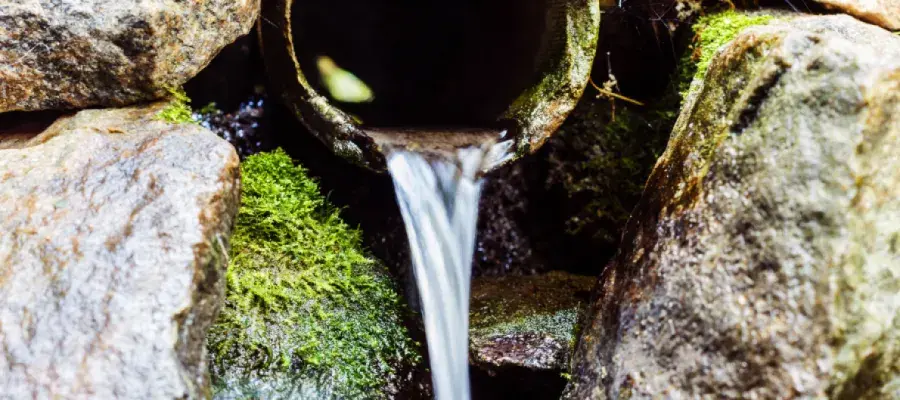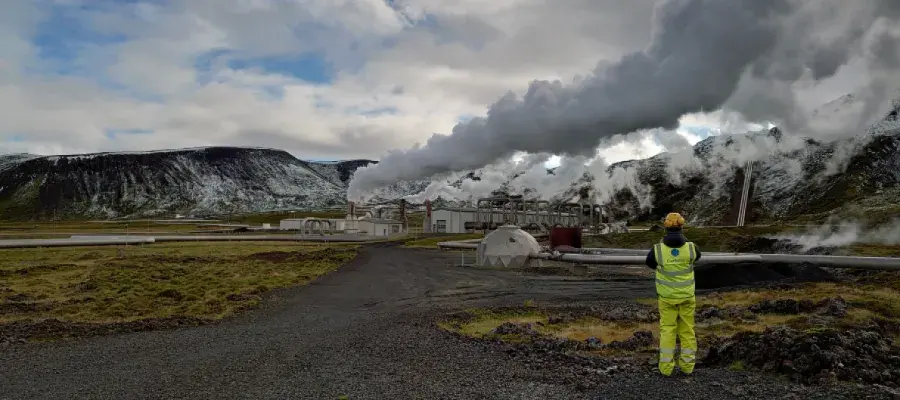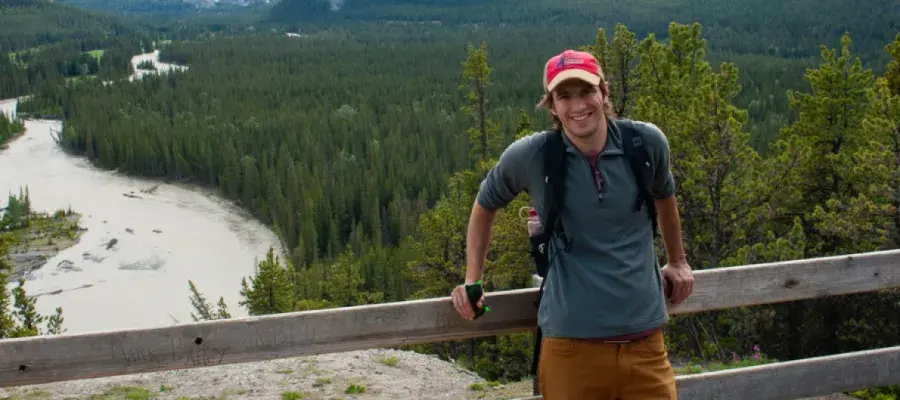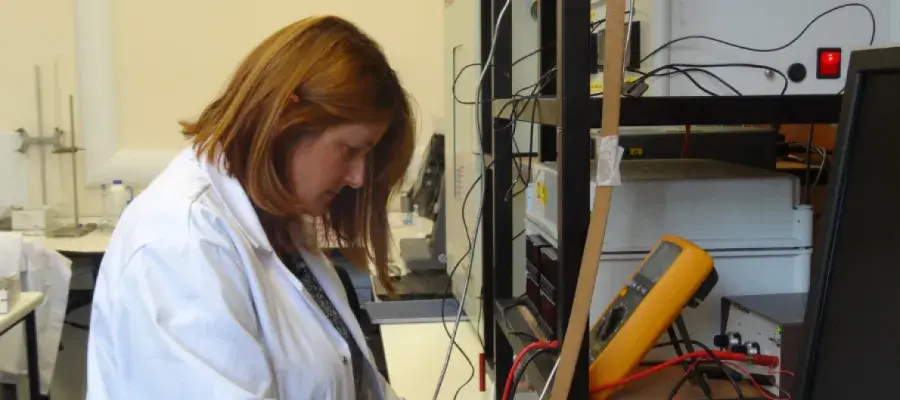Why study Applied Environmental Hydrogeology at Edinburgh?

- Our exciting MSc Applied Environmental Hydrogeology programme is unique from other hydrogeology programmes, as it combines traditional field skills with modern quantitative skills such as computational analysis using state-of-the-art computational tools.
- Graduates with hydrogeology skills are in very high demand. There is an expected shortage of hydrogeologists that will continue for the next decade.
- We'll teach you to recognise and address ethical dilemmas, social responsibility and sustainability issues and apply these to your own values, situations and choices.
- You will learn to become a critical, innovative thinker in the field of hydrogeology with a focus on sustainable environmental practices.
- Through the intersection of emerging and traditional skills, we will ensure that you are equipped to contribute to society’s most pressing water problems.

Online events
We're running a series of online events for applicants and offer holders.
These events will give you a unique opportunity to ask questions and find out more about studying with us at Edinburgh.
Details on how to access this event will be sent via an email invitation to applicants and offer holders.
Back to the applicant website
Pre-arrival reading list
Your courses
This MSc programme comprises:
- compulsory and option courses
- dissertation
You will explore a range of topics, including:
- water resources management
- energy storage
- geofluid interaction (compressed air, methane, hydrogen)
- waste storage (solid, CO2, nuclear)
- energy resource exploitation (geothermal, conventional and unconventional hydrocarbons)
- remediating brownfield and legacy mining sites
- wider groundwater issues such as legislation, economics, climate change, land use and sustainability
You can find out more about compulsory and optional courses on the Degree Programme Tables (DPTs). Please note that the information on the current DPTs is for academic year 2024-25 and is subject to change in future years. The DPTs for academic year 2025-26 will be published in April 2025.
Read more about selecting optional courses on the applicant website.
Your dissertation
We will work with you throughout your studies to prepare you for the dissertation project.
This will be your opportunity to explore a topic of your choice in relation to the programme and prepare a dissertation that you can use to demonstrate your work to potential employers.
Our student David on studying an MSc in Applied Environmental Hydrogeology
Where will you be taught?
The MSc Applied Environmental Hydrogeology is primarily taught at the King's Buildings campus, which is around 15 minutes from central Edinburgh. Depending on the option courses you choose, you may study at various campus locations in Edinburgh. Students in this MSc will also have access to the Edinburgh Climate Change Institute (ECCI) Masters Hub.
Study an MSc in Applied Environmental Hydrogeology
Field trips/excursions

One of the key field trips undertaken in this programme is a two-day investigation of an aquifer underlying a nearby natural flood management project site, nestled in a scenic Scottish valley. You will learn:
- the basics of conducting hydrogeological site visits
- what to look for when visiting a site
- what field methods are typically employed to quantitatively explore aquifer properties
- how to assemble all of this information into a working conceptual and numerical model of the site
The key skills taught by this visit are fundamental parts of a hydrogeologist's toolkit and are in-demand from employers in this sector. Our compulsory field trips or field courses are free, including travel. We strive to deliver a low-carbon experience that also supports the local economy.
Scholarships

School of GeoSciences scholarships
Scholarships and student funding
You can find funding opportunities, tuition fees and costs of living for prospective UK and international postgraduate students on the University website.
You are also encouraged to undertake your own research into the range of potential scholarships and other funding outside the University for which you may be eligible.
Future of your subject
Managing subsurface resource competition is a major overarching theme in hydrogeology, with multiple societal upon both the subsurface and water resources. This includes issues like the availability of fresh water resources, exploitation of mineral resources, and multiple technologies involving subsurface energy extraction and storage (e.g., heat, compressed air, hydrogen, CO2 sequestration, nuclear waste storage).
The future will increasingly require the ability to combine hydrogeological conceptual modelling approaches including qualitative understanding of the nature of the subsurface with quantitative computational assessments of complex coupled process hydrogeological problems.
The appreciation of hydrogeology itself will become more prevalent as growing populations, shifting precipitation patterns due to climate change, flooding coastlines and saltwater ingression among others factors stress available water resources. Water scarcity affects over 40 percent of the world, with that number rising every year. A recent UN report warns that water shortages could affect 5 billion people by 2050. The UN Sustainable Development Goals (SDG’s) reflect this, through SDG 6 Clean water and sanitation with hydrogeology embedded within nearly every other goal. Critically, the United Nations General Assembly recognises access to safe water and sanitation as human rights.
Careers

Graduates with hydrogeology skills are in very high demand. There is an expected shortage of hydrogeologists that will continue for the next decade.
Your career after completing the MSc Applied Environmental Hydrogeology can include:
- groundwater resource management
- ground engineering applications requiring groundwater management
- carbon capture and storage
- contaminated groundwater/soil remediation and brownfield redevelopment
- geothermal applications
- energy and energy generation
- energy storage (compressed air; hydrogen; methane gas)
- geological storage of nuclear waste
- environmental monitoring and tracing of fluids in the subsurface
- project management
Alumni

We have a thriving global network of alumni living and working around the world.
As well as individual MSc programme networks, the School of GeoSciences has a large alumni network, which you can join after graduation.
You'll have the opportunity to engage with and learn from like minded individuals who can offer advice about shaping your career path.
You can read our alumni profiles to find out more about our graduates experiences throughout their studies and beyond on our website.
If you prefer to watch a video, you can watch our alumni interviews on YouTube.
Your programme director and cohort leads.
Find out more about your programme director and cohort lead.

Dr. Ian Molnar
Ian's work looks at fate and transport of contaminants in groundwater and methods to remediate them, as well as fate and transport of engineered nanoparticles in the environment. Additionally, his work looks at GeoEnergy with a focus on carbon capture and storage, subsurface hydrogen storage and geologic repositories for nuclear waste.
In his free time, Ian is an avid camper, canoe/kayak enthusiast and fantasy/sci-fi nerd.
He moved over from Canada in 2019 and is still trying to find good maple syrup here (he might be looking for a while!).

Dr. Katriona Edlmann
Katriona is a reservoir geologist. Katriona's work focuses on advancing and transforming the understanding of subsurface characterisation and multiphase reactive transport through porous media for the secure and sustainable utilisation of subsurface water resources, hydrogen energy storage, carbon capture and storage, geothermal energy through state-of-the-art experiments and benchmarking of numerical modelling to support the clean energy transformation. In her free time, Katriona enjoys tennis, property renovating, keeping her beloved but ancient Citroen 2CV on the road and still making wobble pots after 8 years of pottery classes.
Contact us
Stay in touch
Degree finder
This article was published on
